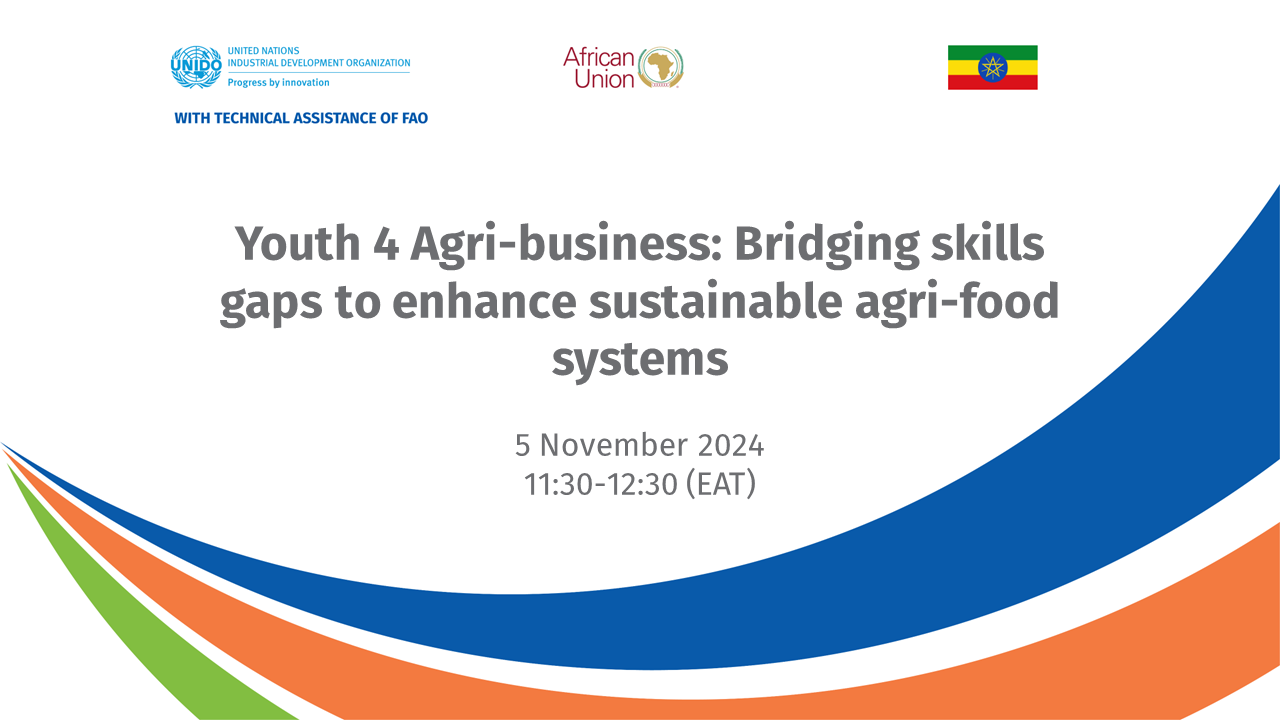


The issue:
As the global population is projected to reach nearly 10 billion by 2050, the agriculture sector faces a critical challenge: a growing exodus of young people away from it. This trend not only threatens the sustainability of agri-food systems but also exacerbates food insecurity. Many young individuals perceive agriculture as a less prestigious and lucrative profession, which underscores the urgent need for structural transformation in economies and education systems.
Agriculture, food manufacturing, and related service sectors present viable job opportunities that can attract young entrepreneurs, thereby contributing to broader economic growth and sustainability. According to the World Economic Forum's Future of Jobs 2023 report, jobs for agricultural equipment operators are expected to grow by 30% by 2027, adding three million jobs globally. However, the low penetration of artificial intelligence (AI) in agriculture means that agri-businesses, particularly in low- and middle-income countries, must adapt to technological changes and identify adequately skilled human resources to remain competitive.
Developing “agripreneurs”' skills relies on enhancing educational systems that emphasize demand-oriented academic and vocational training. These programmes should align with industry needs, incorporate innovative technologies, and utilize modern pedagogical approaches, while also fostering partnerships with the private sector.
By establishing robust educational and vocational frameworks, countries can mitigate potential labour market disruptions caused by emerging agricultural technologies and AI, while simultaneously creating new opportunities for youth.
This session aligns with the critical areas of the 2022 African Agribusiness Youth Strategy (AAYS) adopted by the African Union, which emphasizes making agri-business appealing to youth and developing necessary skills at various levels.
Objectives:
This session aims to:
Highlight the specific needs and expectations of young agripreneurs, focusing on developing their entrepreneurial mindset, management skills, and the demand for a well-educated and appropriately skilled workforce.
Offer participants (mainly representatives from the public and private sector, but also financial and technical actors and development partners), insights into how they can effectively support and promote young agripreneurs as vital contributors to agri-business development.
Key guiding questions:
Challenges and opportunities: What are the main challenges and opportunities for youth entering the agri-business sector, and how can robust skills development pave the way?
Educational enablers: What educational enablers can encourage youth to pursue careers as independent agripreneurs or employees within agri-business?
Supporting initiatives: How can future initiatives strengthen skills development and entrepreneurial ecosystems to ensure sustainable agri-industrialization?
Expected outcomes:
Understanding the main barriers and opportunities for youth entering the agri-business sector, with a focus on skills development and technological adaptation.
Proposing improvements to educational and vocational training ecosystems that align with industry needs, incorporating modern technologies and fostering entrepreneurship.
Outlining actionable steps to make agri-business more appealing to youth, including policy support and access to resources like finance and technology.
Encouraging collaboration between public and private sectors to strengthen skills development, entrepreneurial ecosystems, and ensure the inclusion of youth in sustainable agri-business initiatives.
Session format and structure:
The panel may consist of up to 6 people, of which 2-3 are youth agripreneurs (producers and actors along the value chain with businesses that have employees), 1-2 from the private sector (international companies) and 1-2 from the public sector (national level representatives responsible for implementing policy frameworks for youth in agri-business).
Setting the scene

His Excellency Mr. Cem Özdemir, Federal Minister of Food and Agriculture, Germany
Moderator

Ms. Sakina Usengimana, Chief Executive Officer, Afri-Foods Ltd
Sakina Usengimana is the Chairperson of Rwanda Youth in Agribusiness Forum (RYAF) and Managing Director of Afri-Foods Ltd, a leading horticulture export company. With a background in Business Management and Entrepreneurship from Akilah Institute/Davis College, she has dedicated her career to empowering youth and women in agriculture. A recipient of the Texas Christian University Wilkens Award, Sakina is committed to promoting sustainable agriculture and establishing Rwanda’s global presence in the agribusiness sector.
Panelists

Mr. Haile Abebe, Youth Employment and Partnerships Officer, African Union Commission
Haile Abebe is a Youth Employment and Partnerships Officer in the Department of Agriculture, Rural Development, Blue Economy and Sustainable Environment at the African Union Commission in Addis Ababa, Ethiopia. He is currently in charge of coordinating youth employment in agriculture and agribusiness activities and programmes, including facilitating the implementation of the African Agribusiness Youth Strategy (AAYS) activities at the continental level. Prior to joining the African Union Commission, he worked as a technical officer for a joint European Union and International Labour Organization (ILO) technical cooperation programme titled Strengthening the Impact on Employment of Sector and Trade Policies (STRENGTHEN) in Geneva, Switzerland. Haile holds a Master’s degree in Public Policy with a special focus on Social and Innovation Policies from Sciences Po Paris, France.

Ms. Didem Özkan-Luers, Executive Consultant Global Education, Festo Didactic
Didem Özkan-Lüers has been with Festo for approximately 30 years, a global leader for industrial automation technologies and a solution provider for technical and vocational education. She has been having various roles and management responsibilities within Festo Didactic in Turkey and Germany.
She has extensive experience in leading sustainable educational projects on a global scale, with a multi-stakeholder approach with an impact on sustainable socio economic progress. In 2023, she was appointed as Festo's Executive Consultant for Global Education. Didem holds an executive MBA.

Ms. Lena-Maria Russ, Managing Director, Maschinenring Foundation
Lena-Maria Russ is Managing Director of Maschinenring Foundation (MRF) and a farmer. MRF supports the global development of machinery rings as agricultural self-help organisations, which have been active in 17 countries since their launch in Germany in 1958. Since 2018, over 200 MRs with more than 40,000 farms have been established through the efforts in Africa. The aim of the machinery rings is to use locally adapted technologies to combat hunger, increase productivity and create economic benefits for farmers worldwide.

Mr. Hastings Nhlane, Founder and CEO, ACADES
Hastings Nhlane is the Founder and CEO of ACADES, a social enterprise that is investing in thousands of smallholder farmers in Malawi. Over the past eight years, ACADES has provided financing, market access to 11,000 small-scale farmers through an ethical contract farming model. Hastings is a recipient of the Planning for Impact Award and Presidential Zikomo Award from the President of Malawi. He is also an Africa Visionary Fellow, Ashoka Fellow, and Perennial Fellow.